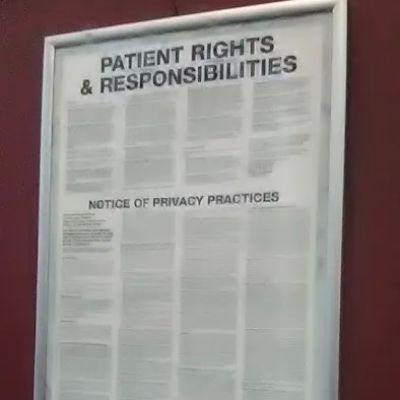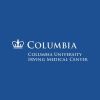Understanding Heart Disease Risk Factors for People Over 50
- How Age Affects Heart Disease Risk
- Common Heart Disease Risk Factors After 50
- Effective Lifestyle Changes to Reduce Heart Disease Risk
- Real-Life Stories of Managing Heart Disease Risk After 50
- The Importance of Regular Checkups for Heart Health
1. How Age Affects Heart Disease Risk
As we age, our risk of developing heart disease increases, particularly after the age of 50. This is due to a combination of factors including the natural changes in the heart and blood vessels, along with the accumulation of lifestyle choices over the years. After 50, the arteries may lose some of their elasticity, and plaque buildup in the blood vessels becomes more common, both of which can increase the risk of cardiovascular problems.
For many, this is the age when underlying conditions like hypertension, high cholesterol, or diabetes may start to manifest. These conditions, if left untreated, contribute significantly to heart disease. Additionally, age-related changes in metabolism and hormonal shifts, such as menopause in women, further increase heart disease risk after 50.

2. Common Heart Disease Risk Factors After 50
There are several risk factors for heart disease that become more prevalent as you age. Identifying these risks early is crucial for managing heart health and preventing severe cardiovascular events such as heart attacks and strokes. Here are the most common heart disease risk factors for those over 50:
Atlanta Heart Specialists
atlanta heart specialists
4375 Johns Creek Pkwy #350, Suwanee, GA 30024, USA

1. High Blood Pressure (Hypertension)
High blood pressure is one of the most significant risk factors for heart disease. As you age, your blood vessels become less flexible, which can increase your blood pressure. Hypertension puts added strain on the heart and can damage arteries over time, leading to an increased risk of heart disease. Regular monitoring of blood pressure is essential after 50 to detect and manage hypertension early.
2. High Cholesterol
Cholesterol levels tend to rise with age, particularly the "bad" LDL cholesterol that can build up in the arteries and form plaques. These plaques can obstruct blood flow, leading to heart attacks and strokes. Managing cholesterol through diet, exercise, and, when necessary, medication is crucial in preventing heart disease.
3. Diabetes
Type 2 diabetes is more common in people over 50 and is a significant risk factor for heart disease. High blood sugar levels over time can damage blood vessels and the heart, leading to cardiovascular complications. Proper management of diabetes, including diet, exercise, and medication, can significantly reduce the risk of heart disease.
4. Family History
A family history of heart disease increases your risk of developing similar conditions. If your parents or siblings had heart disease, especially at a young age, it's important to be proactive about managing your health as you get older. Knowing your family’s health history can help your doctor identify potential risk factors and recommend preventive measures.
5. Lack of Physical Activity
As people age, they may become less active, which increases their risk of heart disease. Physical activity is vital for maintaining a healthy heart. Regular exercise helps control weight, reduce high blood pressure, improve cholesterol levels, and enhance overall cardiovascular function. A sedentary lifestyle is a significant contributor to the development of heart disease, particularly after 50.
3. Effective Lifestyle Changes to Reduce Heart Disease Risk
While age can increase your risk of heart disease, making specific lifestyle changes can help mitigate these risks. Here are some of the most effective ways to reduce heart disease risk after 50:
1. Maintain a Healthy Diet
A heart-healthy diet is crucial for managing cholesterol, blood pressure, and weight. Focus on eating whole grains, lean proteins, fruits, and vegetables, while reducing the intake of processed foods, excessive salt, and unhealthy fats. Foods rich in omega-3 fatty acids, like salmon and flaxseeds, can help lower cholesterol levels and reduce inflammation in the body.
2. Exercise Regularly
Physical activity is essential for heart health, especially after 50. Aim for at least 150 minutes of moderate-intensity exercise, such as brisk walking, swimming, or cycling, each week. Regular exercise helps maintain a healthy weight, lowers blood pressure, and improves cholesterol levels. Incorporating strength training exercises can also benefit heart health by boosting metabolism and improving muscle mass.
3. Quit Smoking
Smoking is one of the leading causes of heart disease and should be avoided at all costs. If you smoke, quitting is one of the most important steps you can take to protect your heart. Within just a few months of quitting, your heart health will begin to improve, and your risk of heart disease will significantly decrease.
4. Manage Stress
Chronic stress can contribute to high blood pressure and other risk factors for heart disease. Practicing relaxation techniques, such as meditation, deep breathing exercises, or yoga, can help lower stress levels and improve overall heart health.
5. Regular Health Checkups
Regular checkups with your healthcare provider are crucial for monitoring your heart health. Regular screenings for blood pressure, cholesterol, and blood sugar levels can help detect any early signs of heart disease. Early intervention can make a significant difference in preventing more serious heart-related issues down the line.
4. Real-Life Stories of Managing Heart Disease Risk After 50
Real-life stories highlight the importance of early detection and proactive health management. Take, for example, Mary, a 55-year-old woman who had a family history of heart disease. When she turned 50, her doctor recommended that she begin regular screenings for cholesterol and blood pressure. Mary also adopted a healthier diet and began walking every day. Today, Mary has successfully managed her cholesterol and blood pressure, significantly reducing her risk of heart disease.
Similarly, John, who was in his early 60s, started to experience fatigue and occasional chest pain. After a visit to his doctor, he was diagnosed with high cholesterol and high blood pressure. By following his doctor’s advice, including medication and lifestyle changes, John was able to prevent a heart attack and maintain a healthy heart well into his 60s.
5. The Importance of Regular Checkups for Heart Health
For individuals over 50, regular health checkups are essential in monitoring heart health. By visiting your healthcare provider regularly for screenings and checkups, you can identify early signs of heart disease before they become more serious. Regular checkups also provide an opportunity to receive guidance on managing risk factors, such as high blood pressure, cholesterol, and diabetes.
If you're over 50 and want to take proactive steps in protecting your heart, consider exploring health products and supplements that support cardiovascular well-being. Consulting with a doctor can help you determine the best approach to maintaining a healthy heart.





















Deborah Heart and Lung Center
deborah heart and lung center
200 Trenton Rd, Browns Mills, NJ 08015, USA